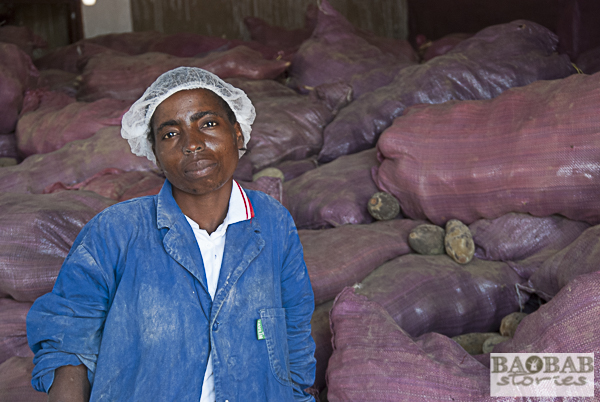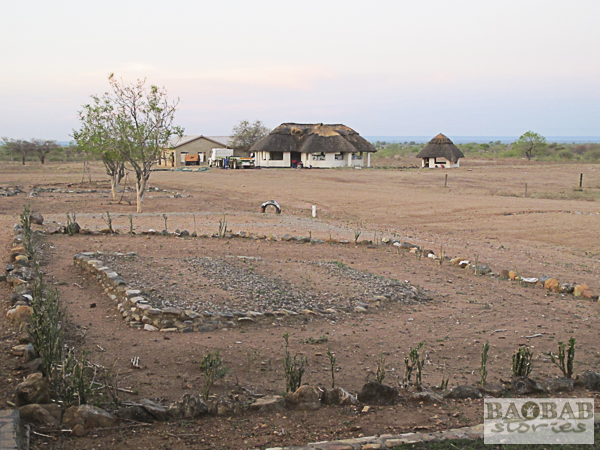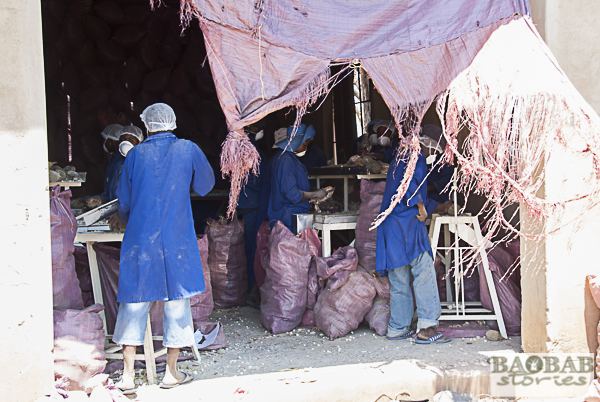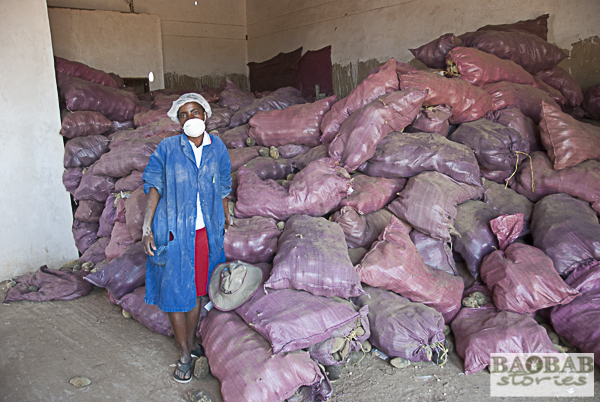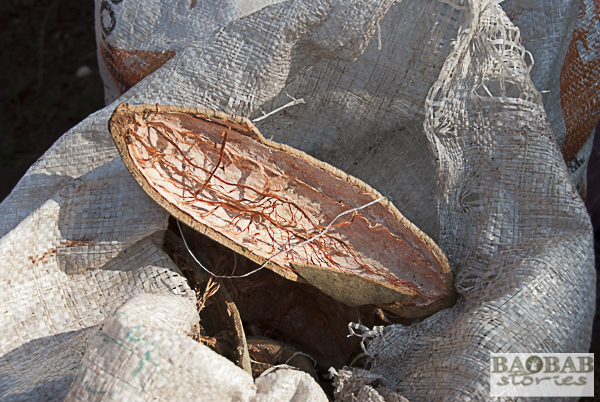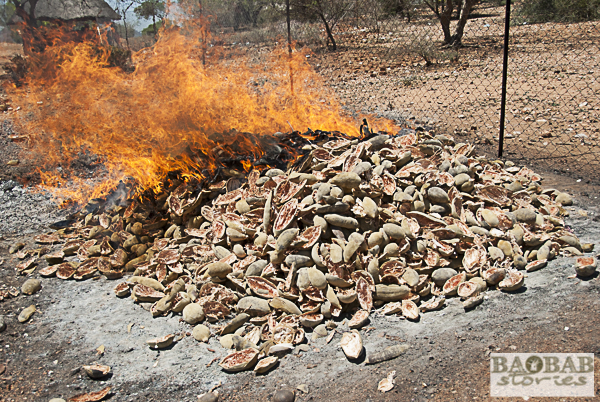“We realized that baobab is money. We can earn some income from selling baobab”, says Ellen Chikatanda from Sarangwa village which is located in the Mount Darwin area in the North of Zimbabwe. Ellen works for B’Ayoba at their Factory Outlet at the Kamutsenzere Grain Marketing Board near Mount Darwin.
Meanwhile our visiting tour of baobab collectors has passed its peak – but the sun has obviously not for today. We have crossed the 40 ° C marker and it seems too hot to do anything significant at the Grain Marketing Board where we spent a night outdoors with little sleep because it was swelteringly hot inside the building. We have come to pick up our belongings and to get ready for the journey back to Harare.
Baobab Factory Brings More Money
Although my fellow travel companions are more than ready to leave there is still one person I would like to meet. Ellen Chikatanda works at the baobab processing factory which B’Ayoba has set up at the Grain Marketing Board. Mostly women work here. It is part of the B’Ayoba policy to create income opportunities for women.
Apart from the money the women earn from selling baobab fruit, they tapped into another source of income by working in the factory. That does not only make the fruit even more attractive for people but brings money to the local shops.
Effort With Little Impact?
At first the activities of a single company might seem as an effort with little impact. But once demand for healthy baobab powder and oil on local as well as international markets grows and the fruit become more attractive, “Hilfswerk Austria” – a development organisation – and local baobab producers believe that it will not only benefit individual families.
As a result of severe droughts, baobab is still stigmatised as “food for the poor” in Zimbabwe. Awareness campaigns are expected to contribute to growing attractiveness of the fruit which could help the population during times of drought. Further they put trust in economic development of the whole baobab region as a result of increased marketing.
Working Clothes Despite the Heat
We meet Ellen Chikatanda in a storage room next to the factory. The heat inside is even higher than outside and despite the fact that we are only surrounded by bags full of baobab fruit ear-splitting noise seems to hammer in on us. Or at least that is how it feels to me. It is difficult to recall later – maybe my senses were slightly overstrung from the heat and everything seemed more intense than usual.
Ellen does not seem to be bothered by the heat. She wears a white hair net, a blue apron to protect her clothes and a mask to protect her lungs from the fine dust that comes with cracking baobab fruit. The wind contributes, too. Her working equipment does not only work for her. It is necessary to prevent contamination of the fruit powder with dirt and bacteria as well.
Recycling Fruit Shells
Processing baobab fruit near the collection points holds another advantage. The fruit powder dries naturally in thick fruit shells on the trees. As soon as the fruit are ripe, they fall to the ground and can be collected.
In order to get to the powder, the workers need to crack the hard fruit shell. Heaps of empty fruit shells remain. Traditionally, the shells were burned and people produced soap from the ashes. This form of recycling has survived to this day. Brought to the cities for further processing, the fruit shells are mere “waste products”.
The factory at the Kamutsenzere Board produces baobab powder for the local market in Zimbabwe. Ellen is happy to work here. Before B’Ayoba bought the fruit and started processing in the factory, people in her village mostly used baobab powder as an ingredient for porridge. “Most of the fruit would just rot on the ground”, she recalls.
The Extra Income Helped Building a House
The cooperation with B’Ayoba is quite recent – they started collecting fruit in 2014. Today people realize that baobab brings money. “If you come to my homestead you would find that there is a big difference”, Ellen says. Apart from sending her children to school she invested in building a house. She proudly states that her family can live in two rooms. They now have a veranda and a roof with asbestos sheeting.
I am not quite sure what to think of the latter since asbestos is known for its negative impact on health – particularly the lungs. I do not have the time to mention that because suddenly everything went black and I nearly pass out. The heat is getting to me and I need some fresh air and a place in the shade.
I would have liked to continue our conversation but I finally agree to head back to Harare with the others – many interesting stories about baobab and its benefits stored on my tape recorder.

